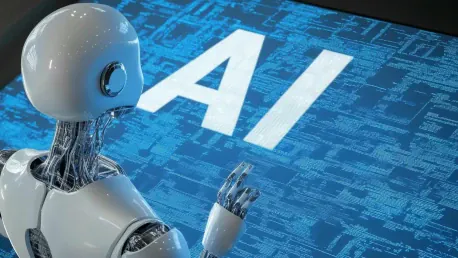Imagine a world where AI controls various aspects of life, from healthcare decisions to judicial outcomes, enhancing efficiency while simultaneously posing significant moral dilemmas. Are we prepared to harness AI’s potential while ensuring ethical practices mitigate its risks? Let’s explore some crucial aspects to consider.
What Is the Importance of Understanding AI Risks and Embracing Ethical AI Practices?
As AI technology rapidly advances, individuals and organizations must balance leveraging its potential with addressing inherent risks. AI’s transformative power can revolutionize industries, but ethical AI practices are fundamental to ensure positive outcomes and minimize harm.
A study by Pluralsight in 2024 revealed a stark gap in AI education: only 1.8% of users focused on responsible AI adoption despite AI’s growing popularity. This highlights a critical disconnect between learning to apply AI and understanding ethical implications.
Examples of AI misuse include generating fake audio or video mimicking real people, altering likenesses without consent, or exploiting AI for “low-tech exploitation.” Ethical considerations become paramount as such misuse carries serious ethical and legal ramifications.
How Can AI Be Misused and What Are the Implications?
AI misuse can lead to profound ethical and legal consequences. AI revolutionizes industries such as healthcare, finance, retail, and manufacturing by optimizing decision-making, automating tasks, and enhancing efficiency. However, complex AI systems can introduce biases, make errors, and infringe on privacy rights without proper oversight.
A pressing concern is AI-driven bias, where models learn from biased data related to gender, race, or socioeconomic status. Consequently, biased AI can perpetuate discrimination in hiring, lending, and law enforcement. Understanding and mitigating these biases is crucial for reliable AI deployment.
Moreover, ethical AI adoption is vital to prevent such misuse while maximizing benefits. Unfortunately, many executives and IT practitioners do not prioritize training their employees adequately for new technology, risking ethical pitfalls. The 2024 Pluralsight AI Skills Report found that 90% of executives were unaware of their teams’ AI skills, and only 12% had extensive experience with AI.
Why Is Ethical AI Adoption Critical for Mitigating Risks?
Ethical AI adoption mitigates risks and negative consequences while enhancing outcomes for society. Business leaders should not assume their internal or external AI practitioners understand ethical AI practices without proper training or experience.
An example of this need is the risk of bias in AI models. Models that learn from biased data can perpetuate discrimination unknowingly, especially in critical processes like hiring and lending. Recognizing biases’ origins and mitigating them is paramount for equitable AI usage.
Data privacy and security are crucial as AI relies on vast data, including sensitive information. Without safeguards, AI might expose private data or become prone to cyberattacks. Responsible data management is essential to protect user rights.
Additionally, AI’s autonomous decision-making necessitates accountability for errors. Transparency in AI design and deployment ensures clear responsibility for mistakes, maintaining a positive AI impact.
How Can AI’s Broader Economic and Societal Impacts Be Understood?
AI’s adoption potentially displaces workers but can also create new job opportunities. Understanding AI’s impacts on the economy and society helps individuals prepare for changes and support fair transitions.
Ethical AI practices maintain principles like fairness, transparency, accountability, and respect for individual rights. Education is crucial for responsible AI development, equipping individuals with technical skills and ethical knowledge.
Key ethical AI practices involve designing AI models treating all users fairly, protecting privacy, ensuring informed consent, anonymizing and securing data, and maintaining transparency.
What Is the Role of Education in Ensuring Ethical AI Practices?
Education in AI ethics and responsible deployment is vital. Training individuals in bias detection, privacy, data protection, and accountability enables responsible AI usage. Pluralsight’s 2024 report emphasizes building AI skills for tackling moral and ethical challenges.
AI’s transformative potential demands careful, responsible development. By understanding AI’s risks, committing to ethical practices, and advocating for responsible deployment, stakeholders can ensure AI drives positive global change. Continuous knowledge refreshment and ethical prioritization are key.
How Can Ethical AI Practices Drive Positive Change?
AI’s benefits across sectors require understanding its risks and committing to ethical practices. Addressing bias, data privacy, security, and job displacement needs collective efforts. Promoting education, transparency, and accountability enables society to leverage AI’s full potential while ensuring fairness.
Organizations must invest in training and governance for ethical AI usage, achieving positive, lasting impacts. By leveraging AI responsibly, we can harness it as a force for good in the world, driving innovation and positive change globally.









